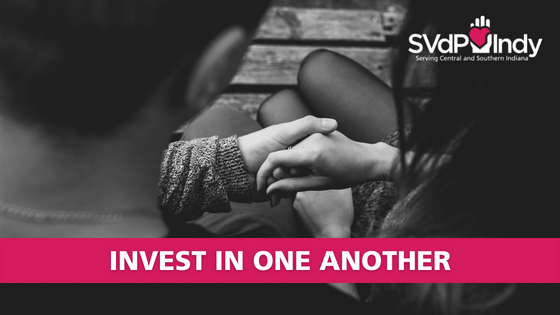A few weeks back we celebrated Good Samaritan Sunday. Deacon Mike Lyman, the Spiritual Advisor for the Mideast Regional Council, wrote a reflection on this topic. I want to share this very insightful reflection with you.
“We heard the story of the Good Samaritan recently—one of the most familiar in all the gospels. It comes in response to the question from the scholar of “Who is my neighbor?” after Jesus gives him what we know to be the most important commandment: “Love God…and love your neighbor as yourself.” Often this gospel is looked at through the lens of focusing on the fact that the Samaritan was the enemy of the Jews, while the priest and Levite would have both been assumed to be friendly. Of course, all of this is predicated on the notion that the victim of the robbery was Jewish.
“There is a two-fold lesson here. First, our neighbor is the one who helps us, and second, ‘God’s way’ is to be neighbor even to our enemies. Good lessons to be sure. The past couple years, though, have caused me to think about this story in another way. COVID and social media have conspired to change how we interact with one another. We send emails and text messages instead of talking face to face. Zoom meetings and group chats have replaced in-person meetings and get-togethers. Work and school have both been done remotely over the past two years. Even doctor appointments are done through tele-health now. Church became an online event, and some still struggle with returning. We have lost our sense of being in relationship with one another.
 “This story is a story of relationship. In order to truly love one another, we must enter into personal relationships—and that cannot be done from a distance. The priest and Levite went past the man on the other side of the road. Maybe they offered some advice, but they didn’t offer relationship. The Samaritan not only cared for him, but he also became invested in the man’s well-being. Our human nature draws us to be in relationship—to become invested in one another. Pope Francis calls us to ‘get the smell of the sheep on us.’ The Samaritan did this. Entering into this type of relationship calls us to put ourselves at risk. But isn’t that a part of what sacrificial love is about? I tell the story of Lila Watson, a poor woman in Australia, who is purported to have said to some who offered help: ‘If you have come to help me, you can go back home. But if you have come to make my problems your problems, then perhaps we can talk.’ How many of us ‘help from the other side of the road—or not at all’ to avoid risk or becoming emotionally attached like the priest and the Levite? The Samaritan man made the beaten man’s problems his problems. Although the parable does not speak to this, I would not be surprised to learn that the Samaritan and the beaten man become friends long-term.
“This story is a story of relationship. In order to truly love one another, we must enter into personal relationships—and that cannot be done from a distance. The priest and Levite went past the man on the other side of the road. Maybe they offered some advice, but they didn’t offer relationship. The Samaritan not only cared for him, but he also became invested in the man’s well-being. Our human nature draws us to be in relationship—to become invested in one another. Pope Francis calls us to ‘get the smell of the sheep on us.’ The Samaritan did this. Entering into this type of relationship calls us to put ourselves at risk. But isn’t that a part of what sacrificial love is about? I tell the story of Lila Watson, a poor woman in Australia, who is purported to have said to some who offered help: ‘If you have come to help me, you can go back home. But if you have come to make my problems your problems, then perhaps we can talk.’ How many of us ‘help from the other side of the road—or not at all’ to avoid risk or becoming emotionally attached like the priest and the Levite? The Samaritan man made the beaten man’s problems his problems. Although the parable does not speak to this, I would not be surprised to learn that the Samaritan and the beaten man become friends long-term.
“As Vincentians, we are called to minister to all whom Christ brings before us. We are not to judge how worthy or unworthy they are to receive help. God calls us to set aside our prejudices, political views and pride, replacing them with compassion, forgiveness, friendship and relationship. He calls us to get personal with one another, investing ourselves in the lives of those around us. Only by engaging in person, on a personal level, can we come to embrace someone else’s circumstances and struggles. Jesus came to ‘visit us in our home’ to bring us his Good News. It is essential we meet those we minister to in their homes that we might come to understand and embrace them where they are at. How do I set aside my prejudices especially when the person in need is different than me? How do I embrace them, getting the ‘smell of the sheep on me?’ Which side of the road have I been offering help from?”
Deacon Mike Lyman, Spiritual Advisor, Mideast Regional Council
Used with permission





